Uneven Floors in Bowling Green, KY
"*" indicates required fields
Common Foundation Problems – Uneven Floors
Uneven floors are a common and easily observable sign of foundation problems in homes across Kentucky and Tennessee. What might seem like a minor inconvenience—a slight slope or the occasional dip in your flooring—can actually be a warning sign of a much deeper issue with your home’s foundation.
These uneven surfaces can affect the structural integrity of your home, leading to potential damage to walls, ceilings, and even plumbing. It’s crucial to address these signs early, as ignoring them can result in costly repairs down the line and compromise the safety and stability of your living environment.
Causes of Uneven Floors
Understanding the root causes of uneven floors is crucial for effectively addressing the issue. Here are some of the most common causes:
The soil composition and weather patterns in Kentucky and Tennessee can cause foundations to settle or shift over time, leading to noticeable slopes and dips in your floors.
If the soil beneath your foundation was not properly compacted during construction, it can lead to uneven support. This unstable soil can shift or erode over time, causing the foundation to become unstable.
Water damage or inadequate drainage around the foundation can lead to soil erosion or swelling. Such movement can compromise the foundation’s stability, resulting in uneven floors.
Tree roots growing too close to the foundation can cause significant soil displacement. As roots expand, they can push against the foundation, leading to uneven settling.
Seasonal variations in soil moisture—due to extended dry periods or heavy rainfall—can cause the soil to expand or contract. This fluctuation can affect the foundation’s stability, leading to uneven floors.
Substandard construction practices, such as improper foundation installation or the use of low-quality materials, can lead to structural weaknesses. These weaknesses can manifest as uneven floors over time.
Solutions for Uneven Floors
Addressing uneven floors requires specialized solutions tailored to the specific challenges identified in your home. Foundation Solutions Group offers a variety of repair methods designed to provide long-term stability:
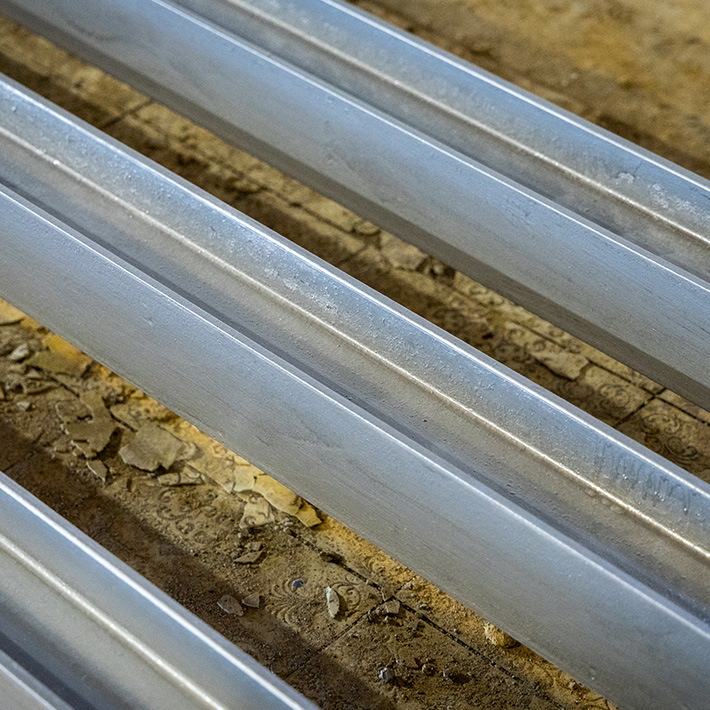
Wall Anchors
Wall anchors can be installed on bowing or leaning walls to stabilize them and potentially return them to their original position over time.
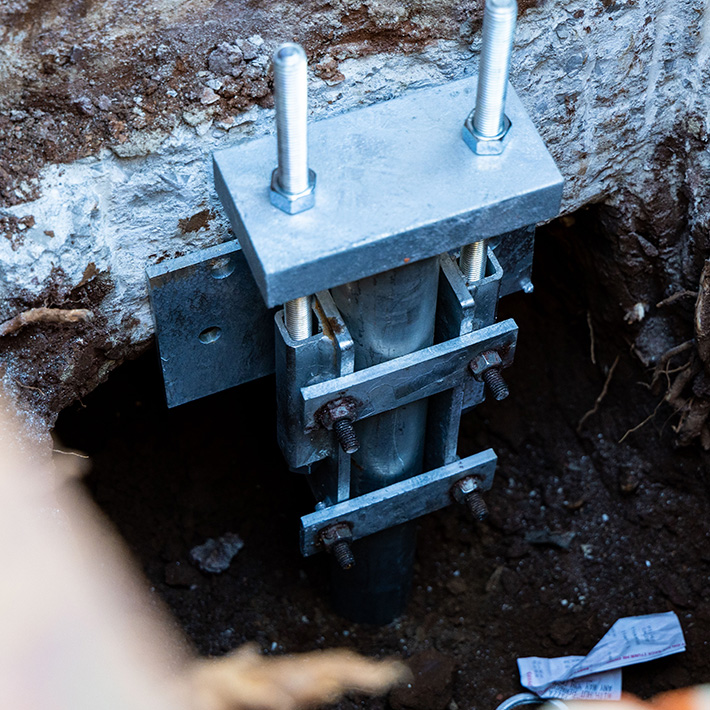
Push Piers and Slab Piers
Push piers and slab piers are inserted beneath the foundation to transfer the building’s weight to load-bearing soil. This helps to lift and stabilize the foundation, preventing further settling.
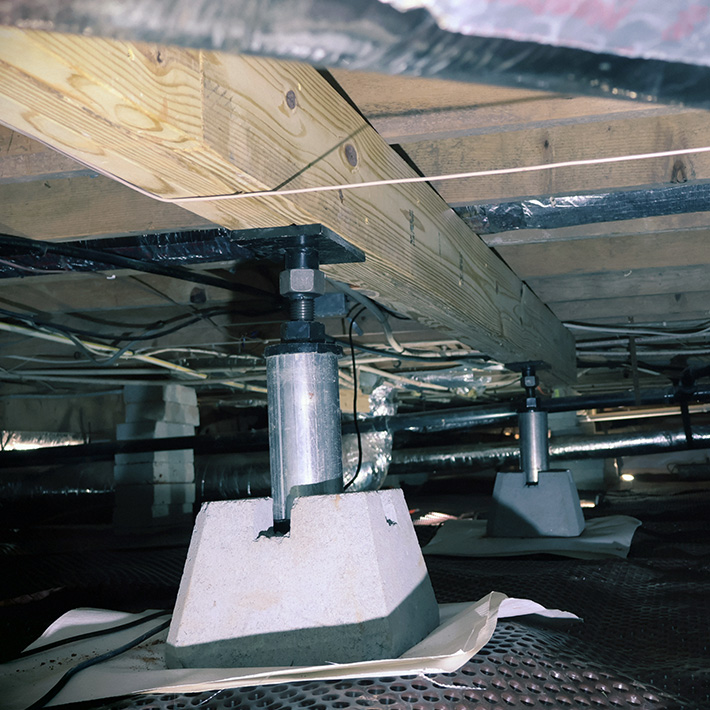
Crawlspace Stabilization
For homes with a crawlspace, a system of stabilizers can be installed to reinforce the floor and foundation. This solution provides additional support and helps maintain the integrity of your home’s structure.
Each of these methods is engineered to provide a durable, long-term solution for your home’s settling issues.
Financing that Fits your Budget and Fixes your Foundation Now
No one wants to have to fix their foundation, but when it’s necessary, our financing solutions can help you get the work done when you need it most.
Hear from Our Happy Customers

"These days, it is a rare experience to feel like you are dealing with professional, honest contractors. Everyone we encountered at this company was a pleasure to work with. At no point did we feel he was trying to ‘up-sell’ our job, and he took his time explaining everything to us. It was a great experience from start to finish."
- Emily C
Ensuring Long-Term Floor Stability
Uneven floors may seem like a minor issue, but they can indicate significant foundation problems that require immediate attention. By understanding the causes, implementing effective solutions, and taking preventive measures, you can ensure the long-term stability and safety of your home.
If you’ve noticed uneven floors in your home, don’t wait for the problem to worsen. Contact Foundation Solutions Group today for a comprehensive foundation inspection and expert repair solutions. Our experienced team is committed to providing exceptional services to keep your home strong and secure.
Preventing Uneven Floors
Prevention is always better than cure. To avoid the hassle and expense of fixing uneven floors, it’s important to take proactive measures. Here are some detailed steps you can take to prevent uneven floors in the future:
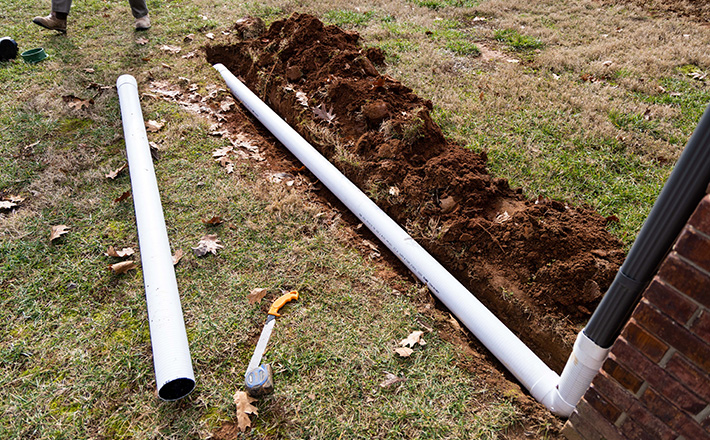
Ensure Proper Grading and Drainage
Properly grading and ensuring good drainage around your foundation prevents water accumulation, which can lead to soil erosion.
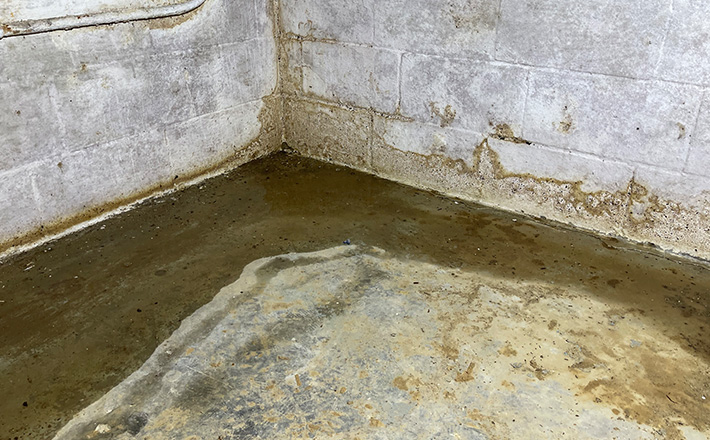
Regularly Inspect for Leaks
Frequent inspections for leaks and water intrusion can help you catch and repair any issues before they cause soil erosion and foundation problems.

Monitor and Control Soil Moisture Levels
Implementing proper moisture control techniques helps manage soil moisture levels around the foundation, preventing expansion and contraction that can lead to uneven floors.
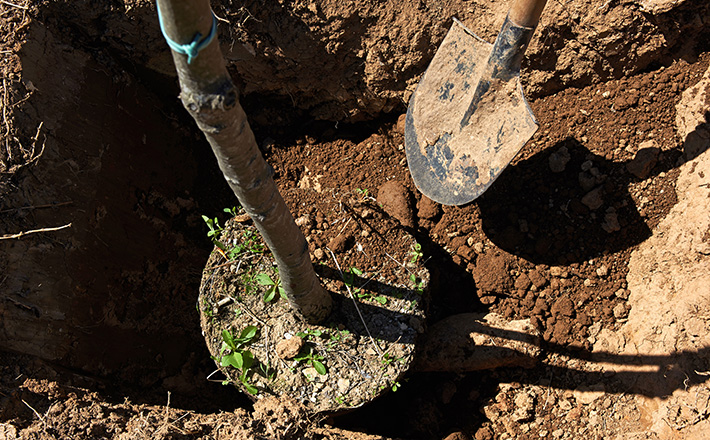
Plant Trees at a Safe Distance
Plant trees and vegetation at a safe distance from your home to prevent root-related soil disturbance.
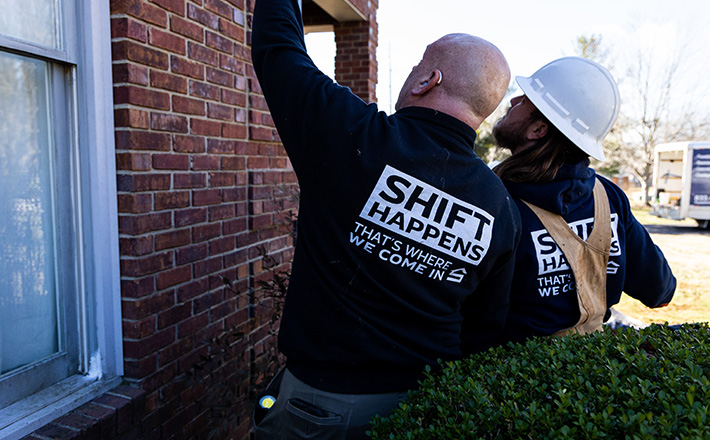
Regular Inspections
Regularly inspect your home for signs of foundation settling and address any issues promptly. Consider periodic foundation maintenance to prevent more significant problems down the line.
